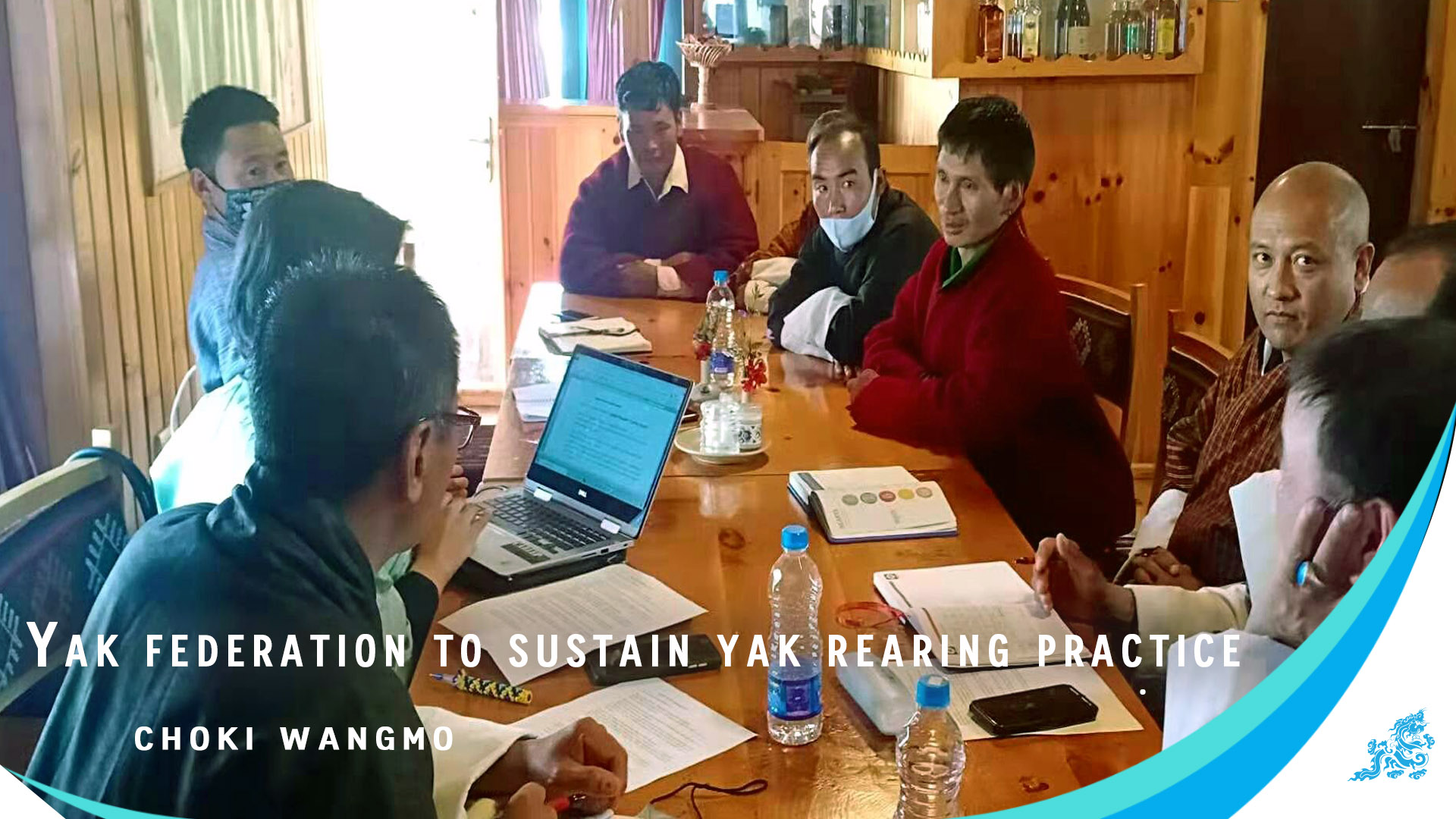
Stakeholders meet to discuss the formation of a federation
Choki Wangmo
Yak rearing practice has dwindled over the years owing to rangeland and breed deterioration, human-wildlife conflict, and lack of interest among youth in the yak rearing dzongkhags. The practice also receives weak policy support and low investments, making it less lucrative.
Although yak production supports the livelihood of about 10 percent of the population in highland dzongkhags, records with the agriculture ministry show that there is about a 30 percent decline in yak owning households between 1996-2016.
To promote yak farming as a vibrant and sustainable practice supporting yak farming communities, earlier this month, a four-day consultative meeting was conducted in Bumthang to form a Yak Federation.
Chief livestock officer with the livestock department, Towchu Rabgay said that yak herding practice was losing its importance as the main source of livelihood for transhumant pastoralists in high-altitude mountains due to various challenges.
He said that a federation would ensure aggregation, standardisation, quality assurance, and cooperative marketing of yak products through proper branding in and outside the country. “It will empower highland communities to have a voice in governance and decision making for the improvement and sustainability of their livelihoods and their living environment.”
The participants from the relevant agencies drafted by-laws and action plans for the federation.
Towchu Rabgay said that as decided during the meeting, henceforth, yak development activities for herders will be monitored and planned by the federation in close consultation with stakeholders.
One of the foremost activities of the federation is forming a yak cooperative at the national level. Currently, there are 10 registered cooperatives spread across yak rearing dzongkhags.
The federation will be registered with the Department of Agricultural Marketing and Cooperatives.
Annual Livestock Census last year counted 1,062 yak owning households with a total yak population of 40,901 in the country.
Nomads face varied challenges like inadequate feed during lean season and no compensation for the yaks killed by wild animals. Gid disease among yaks is also an emerging issue.

